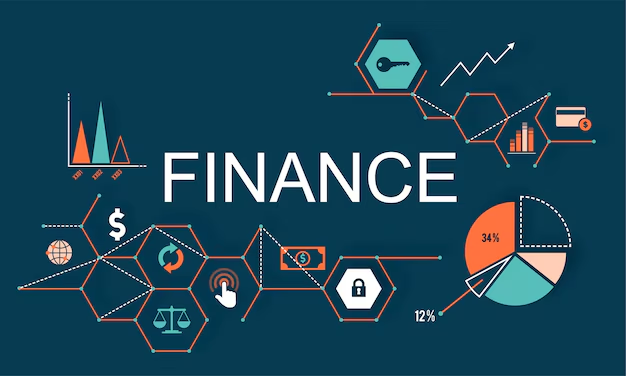The Future Of Investing: Navigating The Changing Financial Landscape
Investing has always been a powerful tool for building wealth, but the landscape of investing is constantly evolving. New technologies, shifting economic trends, changing regulations, and emerging markets have all contributed to the transformation of how and where people invest. For investors, staying ahead of these trends and understanding the future of investing is crucial to making informed decisions that lead to financial success.
In this article, we will explore the future of investing by analyzing the key trends shaping the investment world, including technological advancements, alternative assets, environmental, social, and governance (ESG) investing, and more. We’ll also discuss the opportunities and challenges these trends bring and provide strategies to navigate the changing financial landscape.
Chapter 1: The Rise of Technology in Investing
1.1 Artificial Intelligence and Machine Learning
Artificial Intelligence (AI) and Machine Learning (ML) are transforming the investing world. These technologies have already begun to shape how investors analyze data, make investment decisions, and predict market trends. In the future, AI will play an even larger role in:
- Algorithmic Trading: AI-powered trading algorithms can execute trades at lightning speed, utilizing vast amounts of data to identify market trends and opportunities that humans might miss.
- Predictive Analytics: ML models can analyze historical data and recognize patterns, providing more accurate forecasts for stocks, bonds, and other assets.
- Personalized Investment Advice: Robo-advisors, which use AI to offer automated financial advice, are becoming more advanced and accessible, enabling investors to receive customized portfolio recommendations with lower fees.
Investors will need to understand how to leverage these technologies to their advantage and incorporate AI-driven tools into their investment strategies.
1.2 Blockchain and Cryptocurrencies
Blockchain technology, which underpins cryptocurrencies like Bitcoin and Ethereum, has the potential to revolutionize the investment landscape. Cryptocurrencies offer investors new ways to diversify their portfolios, and blockchain promises to increase transparency, reduce fraud, and improve the efficiency of transactions. In the future:
- Decentralized Finance (DeFi): DeFi platforms are enabling peer-to-peer financial transactions without intermediaries like banks. This could lead to new investment opportunities and challenges, as well as changes to traditional financial systems.
- Tokenization of Assets: Real estate, art, and other traditionally illiquid assets can be tokenized on the blockchain, allowing for fractional ownership and opening up new markets for investors.
- Central Bank Digital Currencies (CBDCs): Governments around the world are exploring CBDCs, which could have significant impacts on traditional investing by creating a new digital asset class.
While these developments provide exciting opportunities, they also introduce risks, such as volatility, regulatory uncertainty, and cybersecurity threats. As an investor, it’s important to carefully consider the implications of cryptocurrencies and blockchain technology in the future investment landscape.
Chapter 2: The Rise of Sustainable and Impact Investing
2.1 ESG Investing
Environmental, Social, and Governance (ESG) investing has gained significant traction in recent years, and this trend is expected to grow in the future. ESG refers to the three central factors used to measure the sustainability and ethical impact of an investment in a company or business. The future of ESG investing looks promising as investors increasingly prioritize:
- Environmental Responsibility: Companies that prioritize sustainable practices, such as reducing carbon emissions or using renewable energy sources, are becoming more attractive to investors.
- Social Responsibility: Companies with strong ethical standards, fair labor practices, and positive community impact are gaining popularity among socially-conscious investors.
- Governance: Transparent governance, strong leadership, and corporate accountability are essential for investors who want to avoid unethical practices and ensure long-term stability.
Investing in companies with strong ESG scores is not only beneficial for the planet and society but also offers financial returns. Research has shown that companies with strong ESG practices tend to outperform their peers over the long term, making ESG investing both a responsible and profitable strategy.
2.2 Green Bonds and Renewable Energy
The future of sustainable investing is also being shaped by innovations in green bonds and renewable energy. Green bonds are fixed-income securities issued to finance environmentally friendly projects, such as wind farms or solar energy plants. As the global focus shifts toward reducing carbon footprints, green bonds are expected to attract more investors who are looking to finance projects that contribute to climate change mitigation and sustainability.
Additionally, renewable energy sectors like solar, wind, and hydrogen are anticipated to see significant growth as demand for clean energy rises. As an investor, it’s important to pay attention to these trends and consider adding green bonds and renewable energy stocks to your portfolio.
Chapter 3: The Expanding World of Alternative Investments
3.1 Real Estate and Crowdfunding
Real estate has long been a favored asset class for building wealth, but traditional real estate investment opportunities often require significant capital. The rise of real estate crowdfunding platforms is changing that by allowing investors to pool their money together to invest in large-scale real estate projects. These platforms provide access to real estate investment opportunities that were previously only available to high-net-worth individuals.
In the future, real estate crowdfunding could become more mainstream, offering lower entry barriers for small investors and enabling more diversification in investment portfolios. As an investor, this opens the door to new opportunities in residential, commercial, and industrial real estate.
3.2 Private Equity and Venture Capital
Private equity (PE) and venture capital (VC) are alternative investment strategies that have traditionally been available only to accredited investors. However, as the demand for alternative investments increases, these markets may become more accessible to the broader investing public.
- Private Equity: Investors can buy into private companies, either by acquiring stakes or through direct investments, with the goal of generating returns through business improvements and eventual sale or IPO.
- Venture Capital: Investing in early-stage startups that show high growth potential is another alternative investment strategy that is gaining traction. While risky, venture capital offers the potential for high returns, especially in emerging technologies.
The democratization of private equity and venture capital investments through crowdfunding platforms or new regulatory changes could change the way individuals access and engage with these alternative asset classes.
3.3 Commodities and Precious Metals
Commodities such as gold, silver, oil, and agricultural products have long been used as hedges against inflation and economic uncertainty. While the role of commodities in investment portfolios has fluctuated, the future may bring renewed interest due to:
- Global Supply Chain Disruptions: Commodity prices may rise as global supply chains experience disruption, making commodities an attractive investment.
- Geopolitical Risks: Investors seeking to diversify away from traditional stock markets may look to commodities, which often move independently of stocks and bonds.
- Sustainability: Precious metals like silver and lithium are increasingly important in the production of green technologies, such as solar panels and electric vehicle batteries, making them valuable for sustainable investors.
Chapter 4: The Future of Investment Platforms
4.1 The Evolution of Robo-Advisors
Robo-advisors are digital platforms that provide automated investment advice based on algorithms and user preferences. These platforms are becoming more sophisticated, offering personalized investment strategies with lower fees than traditional financial advisors. In the future, robo-advisors will continue to evolve, integrating AI and machine learning to provide even more tailored solutions for individual investors.
4.2 Fractional Shares and Micro-Investing
Fractional shares allow investors to purchase a portion of a share in a company, making it possible to invest in high-priced stocks like Amazon or Tesla with smaller amounts of money. Micro-investing platforms, such as Acorns or Stash, enable users to invest spare change from everyday purchases. This democratization of investing allows individuals to invest with as little as a few dollars, making investing accessible to a larger pool of people.
Conclusion: Navigating the Future of Investing
The future of investing is characterized by technological advancements, a greater emphasis on sustainability, and the growth of alternative assets. Investors who embrace these changes and stay informed will be well-positioned to take advantage of the opportunities presented by this evolving landscape.
However, with these new opportunities come new risks. Investors will need to adapt by staying informed, diversifying their portfolios, and continuously learning about emerging trends in the investment world.
By focusing on key trends such as AI, blockchain, ESG investing, and alternative assets, individuals can build diversified portfolios that maximize long-term growth and mitigate risks. Navigating the future of investing will require patience, adaptability, and a willingness to explore new strategies.
Key Takeaways
- Technology is reshaping investing, with AI, machine learning, and blockchain offering new opportunities and challenges.
- Sustainable investing (ESG) is becoming mainstream, with a growing focus on environmental, social, and governance factors.
- Alternative investments such as real estate crowdfunding, private equity, and venture capital are opening up new avenues for wealth-building.
- Investment platforms are becoming more accessible, with fractional shares and robo-advisors democratizing investment opportunities.

